- Skip to primary navigation
- Skip to main content
- Skip to primary sidebar
Reviews from Broadway and Beyond

Baby: Nearly 40 Years Later, the Story Goes On
By Melissa Rose Bernardo
★★★★☆ The 1983 musical gets a 2021 makeover courtesy of Out of the Box Theatrics

Confession: I’ve never been much for babies, but I’ve always been terribly fond of Baby .
The bouncy score by Richard Maltby Jr. and David Shire is packed with toe-tapping, instantly memorable songs; from “We Start Today” to “The Story Goes On” to “And What If We Had Loved Like That,” to name just a few, truly, there’s not a clunker among them. (Side note: What was in the water in the 1983–84 Broadway season? Baby , La Cage aux Folles , The Rink , The Tap Dance Kid , and Sunday in the Park With George . That is some selection of musicals.) Now, thanks to Out of the Box Theatrics’ extremely intimate, heart-on-its-sleeve production, those terrific tunes are stuck in my head once again.
Out of the Box first decided to, as director Ethan Paulini described it before the show, “bring Baby into the 21st century” in 2019; this revival of the revival continues the company’s rethink of the original, a story of three (white heterosexual) couples of varying ages going through pregnancies. In the current version, students Lizzie (Elizabeth Flemming) and Danny (Johnny Link), who did not plan to have a baby as juniors in college, are legally blind and deaf, respectively. The struggling-to-conceive middle couple—formerly Nick and Pam—are now Nicki (Jamila Sabares-Klemm) and Pam (a dynamite Danielle Summons), both women of color. And empty-nesters Arlene (Julia Murney, wonderfully wry) and Alan (Robert H. Fowler) are an interracial couple. “What remains is the beloved score,” writes Paulini in his director’s note, “but just about everything else is new.”
[ Read Steven Suskin’s ★★★☆☆ review here. ]
There have been some tiny tweaks to the score. For instance, in Lizzie, Pam, and Arlene’s name-dropping song “I Want It All”: “I want to be Gloria Steinem, Janis Joplin, Annie Hall” has become “I want to be Michelle Obama, Nora Ephron, Annie Hall”; “I want to be Katherine Hepburn, Connie Chung, Madame de Staël” is now “I want to be Serena Williams, Meryl Streep, Madame de Staël” (kudos for keeping the early-19th-century French feminist literary reference!); thankfully, “I want to be Donna McKechnie/ Donna Summer/ Donna Reed” remains unchanged, because some people are simply timeless. But Sybille Pearson’s book has been basically overhauled. For instance, Danny to Lizzie on their origin story: “You and I met in a support group because our ‘Woke’ college wants to become ‘inclusive of disabilities.’” The fertility doctor (Jewell Noel) discussing sperm donors with Pam and Nicki: “Did you pick the Nigerian Rhodes Scholar who spoke seven languages and was a concert pianist?” No, says Pam, they went with “the trumpet-playing hockey star with a PhD, and who says he looks a little like Idris Elba.”
This Baby is on its way, but still has some growing to do. Too many of the book scenes bring the show to a screeching halt, and are in desperate need of trimming. (The aforementioned in-vitro exchange is the worst offender, though a late-show argument between Danny and Lizzie runs a close second.) And it feels petty to dis Out of the Box’s space, but a few more square feet—and perhaps a room without a pillar practically in the middle of the stage—would do wonders for this production. Baby is an emotional show, and when the whole room (including the audience!) is entirely lit, it’s hard to get completely lost in the story. I’m still not sure how I got through Danny’s bus station ballad “I Chose Right” without crying; I suppose it was fortunate that I was looking at Link’s back for most of the song.
Baby opened Nov. 14, 2021, at Theaterlab and runs through Dec. 12. Tickets and information: ootbtheatrics.com

About Melissa Rose Bernardo
Melissa Rose Bernardo has been covering theater for more than 20 years, reviewing for Entertainment Weekly and contributing to such outlets as Broadway.com, Playbill , and the gone (but not forgotten) InTheater and TheaterWeek magazines. She is a proud graduate of the University of Michigan. Twitter: @mrbplus . Email: [email protected] .
- Share full article

Critic’s Notebook
Schubert’s Operas Were Failures. Is Their Music Worth Saving?
In Paris, “L’Autre Voyage” assembles the composer’s arias and art songs to create a jukebox show, perhaps the greatest opera Schubert never wrote.
Franz Schubert in a drawing from around 1820. When he was 17, he composed “Des Teufels Lustschloss,” which would become his first completed stage work. Credit... Rischgitz/Getty Images
Supported by

By Joshua Barone
Reporting from Paris
- Feb. 15, 2024
“I feel myself the most unhappy and wretched creature in the world,” Franz Schubert, suffering from syphilis and reeling from professional failures, wrote in March 1824 to his friend, the painter Leopold Kupelwieser. Imagine a man, he said, who will never be healthy again, and “whose most brilliant hopes have perished.”
In the same breath, Schubert expressed sorrow over the fate of his attempt at a grand Romantic opera, “Fierrabras,” which had been canceled in Vienna, and that of another stage work, “Die Verschworenen,” which didn’t make it past a private performance. “I seem once again,” Schubert, then 27, wrote in his letter, “to have composed two operas for nothing.”
He wouldn’t return to the genre again. And even after his death in 1828, at 31, when many of his works enjoyed posthumous adulation and were performed widely, none of his theatrical undertakings entered the standard repertoire.
It’s surprising that opera eluded Schubert, who by most counts started about 20 stage works, completed fewer than a dozen and saw the premieres of just two. After all, he wrote some of the most beautiful vocal music in the repertoire: the song cycles “ Die Schöne Müllerin ” and “ Winterreise ,” and hundreds of beloved lieder like “ Gretchen am Spinnrade ” and “ Ave Maria .”
And yet the operas remain curiosities better heard than seen, often composed to clumsy librettos and denied the revisions that could have accompanied rehearsals.

Without championing the stage works as worthy of revival on their own, a production at the Opéra Comique in Paris, “L’Autre Voyage,” or “The Other Journey,” is mining their gems. It assembles arias, excerpts from the oratorio “Lazarus” and arrangements of lieder to create a kind of jukebox opera with a story that’s entirely new and entirely, gorgeously true to Schubert.
At its finest, Schubert’s music feels at once like the outpouring of an aching soul and the consoling wisdom of a friend who tells you that the thing you’re feeling, that you’re going through, that you’re afraid of — he feels it, too. “L’Autre Voyage” accomplishes something similar with little vignettes, intimate and universal, mysterious and bittersweet, that overwhelm as they accumulate. It’s the greatest opera that Schubert never wrote.
It’s also not an opera that Schubert ever would have written. His early stage works, like the fantastical “Des Teufels Lustschloss,” were in the vein of popular singspiele (the form of Mozart’s “The Magic Flute”). And his later efforts, especially “Alfonso und Estrella” and “Fierrabras,” were attempts at grand Romanticism. His characters were kings and castle-dwellers, coming from exotic locales or the time of Charlemagne, and his idiom was more fashionable than forward thinking.
Schubert had been trained to write for the stage by Antonio Salieri, beginning in 1812. He was interested in and, under Salieri, encouraged to write across musical forms and genres. The next year, Schubert completed his First Symphony, and quickly began work on “Des Teufels Lustschloss,” which would become his first completed stage work. In March 1814, when he was 17, he presented his teacher with the complete draft; Salieri “read it with delight,” Lorraine Byrne Bodley writes in the recent biography “Schubert: A Musical Wayfarer.”
“Lustschloss” went through a substantial revision, but Schubert’s sense of craft was already present. Beyond lessons, he had learned a lot as an audience member. He had seen Cherubini’s “Médée” and “The Magic Flute,” popular Italian works and both “Iphigénie” operas by Gluck. After attending an 1813 performance of “Iphigénie en Tauride,” according to an account in the collection “Schubert: Memoirs by His Friends,” he was beside himself, saying, “there could be nothing more beautiful in the world.”
Still, “Lustschloss” didn’t make it to the stage. At the time, nothing he wrote did; although Schubert was prolific, his music wouldn’t be performed publicly for several more years, and he wouldn’t be published until the 1820s.
When Schubert gained some popularity, it was as a lieder composer, which set him up for opportunities in the opera house. Two came in quick succession: a singspiel called “Die Zwillingsbrüder” at the Theater am Kärntnertor in Vienna, and the melodrama “Die Zauberharfe,” nearby at Theater an der Wien, where Beethoven’s “Fidelio” had premiered.
Both received just a handful of performances, but, Byrne Bodley writes, “Schubert had his foot in the door of two of Vienna’s most important theaters.” The city’s opera culture, though, was becoming hostile to his style. “As eminent operatic composers dispersed or died, Schubert was caught in the shift of mood,” Byrne Bodley observes. “For a while there came over German opera a sultry stillness, which could offer his reactive mind neither support nor stimulus.”
The house that had premiered “Die Zwillingsbrüder,” Theater am Kärntnertor, was taken over by an impresario from Italy, leading to the resignation of German singers and the advent of a Rossini craze in Vienna. But Byrne Bodley also questions whether Schubert truly had what it takes to make it as an opera composer. He was determined and musically capable, she writes, yet “he lacked the roll-up-your-sleeves practicality and political acumen which Meyerbeer and Donizetti displayed.”
And without performances, Schubert was unable to see the flaws in his stage works. He loved the score for his “Alfonso und Estrella,” but opera, like any music theater, relies on rehearsals and revisions to succeed. It also didn’t help that he was setting poorly written librettos, including by his friend Franz von Schober, who wasn’t practiced in the form.
Circumstances might have been most against Schubert in the case of “Fierrabras.” It had a promising librettist in Josef Kupelwieser — the brother of Leopold, to whom Schubert wrote so despairingly — but had been planned for the now Italian-run Theater am Kärntnertor.
Josef Kupelwieser worked at the theater, but lost his job over an affair. And, shortly after Schubert finished the score for “Fierrabras,” Carl Maria von Weber’s costly “Euryanthe” premiered to little enthusiasm and a lot of boos (including from Schubert); Byrne Bodley writes that it “brought the curtain down on German music theater.” Kupelwieser’s libretto was rejected, and “Fierrabras” was canceled. Schubert didn’t even get paid.
After Schubert’s death, his stage works slowly premiered well into the 20th century. But the reception tended to be the same: good music, bad opera. That is the belief of the brilliant French conductor Raphaël Pichon , who with his instrumental and choral ensemble Pygmalion, has made an art out of Schubert collages — first, with the concept album “Mein Traum” in 2022, and now with “L’Autre Voyage.” (The production travels in March to Opéra de Dijon , with the same performers as in Paris.)
In a program note, Pichon says that in Schubert’s opera catalog, there is “no forgotten masterpiece to revive.” But while going through those works, he added, he came across moments of “almost spiritual meditation,” in which Schubert the composer of “the universal voice” emerges. From those, he and the director Silvia Costa assembled “L’Autre Voyage.”
The show begins, though, not with opera but with song — projected text from “Gute Nacht,” the opening of “Winterreise” that gives way to the spare chords of the cycle’s ending, “Der Leiermann.” Hence the title: From the “winter journey” of Schubert comes this “other journey,” one more expansive and lasting a lifetime.
Yet, in Schubertian fashion, its expansiveness is contained within something quite small. “Der Leiermann” is sung by a woman (Siobhan Stagg) at a spinning wheel who lets out a red string that stretches across the stage. From it she cuts a fragment barely more than a foot long.
That red string, the most heavy-handed metaphor in “L’Autre Voyage,” represents one life in the continuum of human existence, that of a male protagonist sung by the elegant baritone Stéphane Degout, who was also heavily featured on “Mein Traum.” Costa is a director who builds images more than scenes, which suits the nonlinear nature of this show. Through those tableaux we see the man happy — at his wedding, or watching his child sing at the piano — but also in unbearable pain. His child dies; he gets older; he sometimes feels as though he, too, is dead.
There can never be resolution to a story like this. But “L’Autre Voyage” suggests there is serenity in realizing that whatever we live through, it is all part of the ever-changing human experience. Along the way, Schubert’s music — arias and lieder, and other excerpts — is strung together with slight alterations, particularly in the arrangements by Robert Percival that, while occasionally anachronistic, maintain the show’s dramatic heft and a sense of consistency.
Works that Schubert wrote for just two musicians or forces as large as an entire orchestra and choir come out sounding nearly, neatly the same. But the moments that stand out most — for their poetry, their lyrical turns of phrase, their sensitive beauty — tend to come in the lieder. And that’s not a bad thing. Schubert might have failed in opera, but he was a master of the art song.
Few lieder composers have approached Schubert in his power to move listeners. And he nudged the form in new directions, especially on the dramatic, evening-length scale of his two song cycles. Those, among his most lasting contributions to music, have taken on a life beyond what he intended. It’s now not unusual to see a staged “Winterreise”; you could call it the greatest opera that Schubert ever wrote.
Joshua Barone is the assistant classical music and dance editor on the Culture Desk and a contributing classical music critic. More about Joshua Barone
Find the Right Soundtrack for You
Trying to expand your musical horizons take a listen to something new..
Cass Elliot ’s death spawned a horrible myth. She deserves better.
Listen to the power and beauty of African guitar greats .
What happens next for Kendrick Lamar and Drake?
He sang “What a Fool Believes.” But Michael McDonald is in on the joke.
Hear 9 of the week’s most notable new songs on the Playlist .
Advertisement
- First time at the Opéra-Comique?
Accessibility
- The Opéra-Comique
- Our Commitments
- The Maîtrise Populaire
- The Academie of the Opera-Comique
- Activities and resources
- Menda scholarships
- The Shows’ media library
- Privatisations
- Become a member
- Businesses and events
- Impact projects
- Gala Evening
- They support us
- Taxation, donation and bequests
- American Friends of the Opéra-Comique
- Shopping cart
Back to the menu

L'Autre Voyage
February 01 to 11, 2024
Eager to offer the Viennese composer a stage that brings him closer, Raphaël Pichon and Silvia Costa unearth forgotten scores, jewels of lyricism and melancholia, from which emerge, both literally and figuratively, the ghosts of a masterpiece.
Lyrical Scenes on music by Franz Schubert and texts by Heine, Goethe, Etc.
Schubert has only ever completed half of his lyrical projects and only a few have been taken to the stage. Of these attempts remain scattered pieces which hide exceptional treasures. The production pays tribute to these incomplete works of art: the narrative follows the journey of a creature haunted by finitude and who uses music as a tool for understanding.
In the dark night, a forensic doctor receives a body which he quickly recognises as his own double. He thus engages in a moral and emotional dissection that confronts him with his memories, death and oblivion.
Opera recorded by France Musique and broadcast on Saturday 09 March at 8 pm in Samedi à l'Opéra by Judith Chaine. Available online on the France Musique website and the Radio France app.

Musical direction Raphaël Pichon • Stage direction and decor Silvia Costa • With Stéphane Degout, Siobhan Stagg, Laurence Kilsby, Chadi Lazreq • Orchestra and Choir Pygmalion • Children's choir Maîtrise Populaire de l’Opéra-Comique
Estimated duration : 1h40, no intermission - Salle Favart 165, 135, 110, 75, 50, 35, 15, 6 €
Show performed in German with French and English surtitles
The doors of the opera-house open 45 minutes before the performance.
Announcement for the Monday, February 5 performance:
Siobhan Stagg is suffering from pharyngitis which prevents her from performing today. Nikola Hillebrand will replace her in the role of L'Amour. We thank her for agreeing to sing these unpublished works. Siobhan Stagg will remain on stage as L'Amour. Nikola Hillebrand will sing from the pit.
Some operas are available in audio description. "Image whisperers” are also available on demand. More info on this page
16 seats are dedicated to people with reduced mobility, on reservation at the box office or by phone. Access to the lift is located 5 rue Favart +33 1 70 23 01 44 | [email protected]
Headsets and magnetic loops are available at the ticket inspection desk, on deposit of your ID. Material in Braille and large prints is available free of charge, on site.
Relax sessions offer a inclusive caring environment for people whose disability (autism, multiple disabilities, mental or psychic disability, Alzheimer…) may give rise to atypical and unpredictable behaviour during the show.
Les pléiades
Around the show As you will discover, each lyrical production will be supported by “Pleiades” extending and enriching its content in accessible, offbeat, prospective or intimate formats.

L'Autre Voyage evening
February 03 to 09, 2024

Le Voyage d'hiver
February 14, 2024
Masterclass at the Académie
February 06, 2024
Sharing songs
January 26 to 27, 2024
Before the show
To discover.
45 minutes before the performance : The keys to the show with the dramaturge of the Opéra Comique.
Salle Bizet | Free
The intermission bar offers drinks and light refreshments as soon as the theatre doors open.
Relax session | Sunday 11 FEBRUARY at 3 pm Relax sessions offer a inclusive caring environment for people whose disability may give rise to atypical and unpredictable behaviour during the show.
Audiodescription (In French) | Friday 09 FEBRUARY at 8 pm and Sunday 11 FEBRUARY at 3 pm This opera is available in audio description. "Image whisperers” are also available on demand.
Distribution

In partnairship with

Chasing rainbows
May 21, 2024
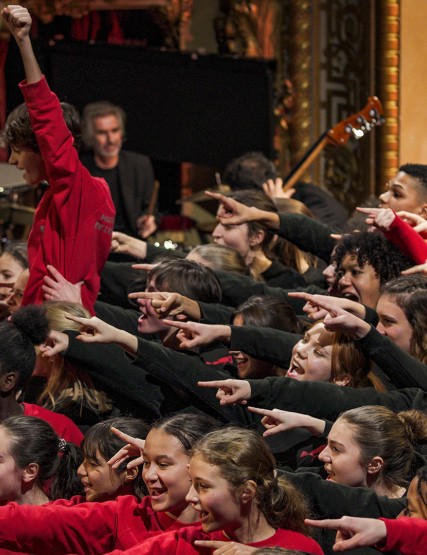

Pré-Maîtrise concert
From May 15 to 16, 2024
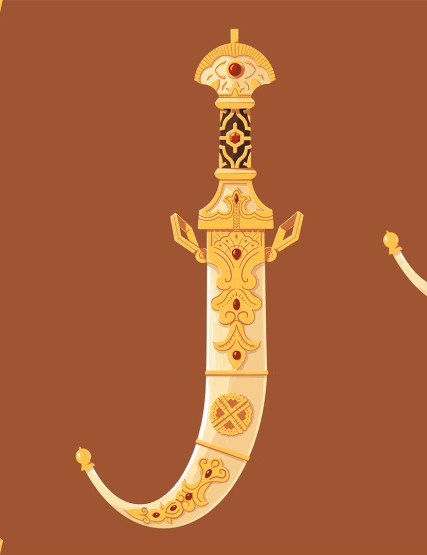
From June 17 to 25, 2024
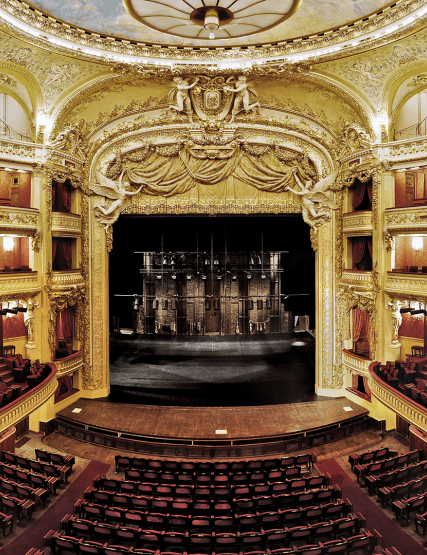
Visit the Opéra Comique
From October 26, 2021 to July 24, 2024
Restez informé de notre actualité et recevez nos meilleures offres !
Tous les champs sont obligatoires.
cruises from florida to grand turk

- Baby MacDonald
- Baby Wordsworth
- My First Signs
- Discovering Shapes
- Baby's First Sounds
- World of Rhythm
- 18th century composers
- 19th century composers
- Romantic composers
- Austrian composers
- Baby Galileo CD
- Lullaby Classics Volume 2
- Traveling Melodies
- Wake-Up and Goodnight
Franz Schubert
- Classical era composers
- On the Farm
- 1797 births
- 1828 deaths
- View history
Franz Peter Schubert was an Austrian composer and songwriter of the late Classical era and early Romantic era. Schubert died at age 31, but was extremely prolific during his lifetime writing over 600 leider (German for “song). Baby Einstein started using his music in 2003. The first Baby Einstein video to use his music was Baby Galileo .
Music Used In BE [ ]
- Symphony No. 8 In B Minor, "Unfinished," D. 759, 1st Movement ( Baby Galileo , Baby Galileo CD , On the Farm CD , Wake-Up and Goodnight )
- Symphony No. 5 In B-Flat Major, D. 485, 4th Movement ( Numbers Nursery , Traveling Melodies )
- Three Marches Militaires, D. 733, Op. 51, No. 1 In D Major (Numbers Nursery, Traveling Melodies, Wake-Up and Goodnight, World of Rhythm )
- Symphony No. 5 In B-Flat Major, D. 485, 1st Movement ( Baby MacDonald , Traveling Melodies, On the Farm CD, Wake-Up and Goodnight)
- Symphony No. 9 In C Major, "Great," D. 944, 4th Movement ( Baby Wordsworth )
- Piano Sonata No. 13 In A Major, D. 664, Op. 120, 3rd Movement ( Lullaby Classics Volume 2 , Lullaby Collection , My First Signs )
- Symphony No. 1 In D Major, D. 82, 4th Movement ( Discovering Shapes )
- Piano Sonata No. 20 In A Major, D. 959, 4th Movement ( Baby's First Sounds )
Music for Hearing [ ]
Symphony No. 8 in B minor, "Unfinished", D. 759, 1st movement
Symphony No. 5 in B-flat major, D. 485, 4th movement
Three Marches Militaires, D. 733, Op. 51, No. 1 in D major
Symphony No. 5 in B-flat major, D. 485, 1st movement
Symphony No. 9 in C major, D. 944, 4th movement
Piano Sonata No. 13 in A major, Op. 120, D. 664, 3rd movement
Symphony No. 1 in D major, D. 82, 4th movement
Piano Sonata No. 20 in A major, D. 959, 3rd movement
- 1 Getty Images Photographs
- 2 Baby Mozart
- 3 Neighborhood Animals
Baby Schubert
- View history

Baby Schubert April 1, 2022 [ ]
- Baby Schubert 2022 April 1, 2022
Characters [ ]
- Camo The Caribou
- Haydn The Anteater
- Harry The Hippo
- Galileo The Kangaroo
- Neighton The Horse
- Quacker The Duck
- Monet The Zebra
- Leopold The Bear
- Roger The Rooster
- Charlie The Cheetah
- Penelope The Penguin
- Isaac The Lion
- Wellington Van Cow
- Pavlov The Dog
- Lizzy The Tiger
- Bard The Dragon
- Vivaldi The Duck (In Cartoon)
- Bach The Rabbit (In Cartoon)
- Neptune The Turtle (In Cartoon Credits Only)
- Benny The Butterfly (In Cartoon Credits Only)
- Anneke The Ant (In Cartoon Credits Only)
- Divin' The Dolphin (In Cartoon Credits Only)
- Flossy The Flamingo (In Cartoon Credits Only)
ATTENTION: Our online shopping cart is temporarily offline. Phone orders can be made via TriLiteral at 1-800-405-1619. We appreciate your patience.

On The Site
- biography & autobiography
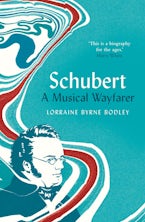
A Musical Wayfarer
by Lorraine Byrne Bodley
736 Pages , 6.00 x 9.25 in , 16 colour illus.
- 9780300204087
- Published: Tuesday, 25 Jul 2023
- 9780300268409
Also Available At:
- Barnes & Noble
- Seminary Co-op
- Description
Lorraine Byrne Bodley is professor of musicology at Maynooth University. Internationally renowned as a Schubert and Goethe scholar, her previous books include Schubert’s Late Music , Rethinking Schubert , Goethe and Zelter , and Schubert’s Goethe Settings .
“A fascinating and invaluable addition to this burgeoning literature. . . . No one alive is better equipped to slay the various Schubert myths—and her biography is undoubtedly the most scrupulous and best-informed so far.”—Ivan Hewett, The Telegraph “[A] remarkably informative book, revealing musical and historical insights that have long been hidden.”—Laura Tunbridge, Times Literary Supplement “It is a welcome revelation from Lorraine Byrne Bodley’s fine biography that [Schubert] was not simply the rabble-rousing wastrel that others have portrayed him as. . . . [Bodley] explores his works in erudite detail.”— Air Mail “With her unique combination of archival zeal, literary brilliance, meticulous knowledge of scholarly sources, and incisive musical acumen, Lorraine Byrne Bodley has produced a masterpiece: a fascinating and nuanced biography that does full justice to this complex, towering figure.”—Michael Beckerman, Carroll and Milton Petrie Professor of Music, New York University “This is a biography for the ages. Its scholarship is oceanic, and its profoundly empathetic engagement with Schubert as man and musician is steeped in the felt life and thought of early nineteenth-century Vienna. A heroic, serenely-considered and compelling achievement.”—Harry White, professor of music, University College Dublin “Lorraine Byrne Bodley is a gifted storyteller who guides the reader through Schubert’s life with deep psychological insight. This illuminating book connects the biography and the musical works of the troubled wayfarer, creating an intriguing link between the author’s life and the protagonist of his famous Winterreise .”—Andrea Lindmayr-Brandl, director of the Schubert Research Centre, Austrian Academy of Sciences, professor of music, University of Salzburg “This book is an event : Lorraine Byrne Bodley slays any number of calcified myths, delves into European sources never explored before in this depth, and loops back and forth between works and biography in a way that illumines both. All Schubert-lovers will gain much from this revelatory magnum opus .”—Susan Youens, Emeritus Professor of Music, University of Notre Dame “This biography, written with empathy palpable on every page, draws a multifaceted portrait of both the man and the composer Schubert—a fascinating picture in which life and works are related to each other in many ways.”—Thomas Seedorf, president, International Schubert Society, NSA
Related Books
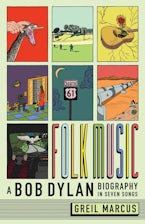
Sign up for updates on new releases and special offers
Newsletter signup, shipping location.
Our website offers shipping to the United States and Canada only. For customers in other countries:
Mexico and South America: Contact TriLiteral to place your order. All Others: Visit our Yale University Press London website to place your order.
Shipping Updated
Learn more about Schreiben lernen, 2nd Edition, available now.

Schubert: Voyage d'hiver (Live)
Victoire Bunel, Jean-Christophe Lanièce & Romain Louveau
25 SONGS • 1 HOUR AND 15 MINUTES • JAN 12 2024
- TRACKS TRACKS
- DETAILS DETAILS
How are ratings calculated?
- Amazon Newsletter
- About Amazon
- Accessibility
- Sustainability
- Press Center
- Investor Relations
- Amazon Devices
- Amazon Science
- Sell on Amazon
- Sell apps on Amazon
- Supply to Amazon
- Protect & Build Your Brand
- Become an Affiliate
- Become a Delivery Driver
- Start a Package Delivery Business
- Advertise Your Products
- Self-Publish with Us
- Become an Amazon Hub Partner
- › See More Ways to Make Money
- Amazon Visa
- Amazon Store Card
- Amazon Secured Card
- Amazon Business Card
- Shop with Points
- Credit Card Marketplace
- Reload Your Balance
- Amazon Currency Converter
- Your Account
- Your Orders
- Shipping Rates & Policies
- Amazon Prime
- Returns & Replacements
- Manage Your Content and Devices
- Recalls and Product Safety Alerts
- Conditions of Use
- Privacy Notice
- Consumer Health Data Privacy Disclosure
- Your Ads Privacy Choices

L'Autre Voyage magnifie la musique vocale de Schubert à l'Opéra-Comique
Dans la pénombre, une femme seule auprès d’un rouet (est-ce Marguerite ?) entonne un chant lugubre accompagné d’une pédale grave à la harpe. Elle chante le sépulcral dernier lied du Voyage d’hiver , « Le joueur de vielle », prolongé par son adaptation par Brahms, Einförmig ist der Liede Gram . Alors que résonnent les échos des sopranos, elle coupe le fil du rouet : la Parque vient d’abréger une vie humaine. Un silence de plomb envahit alors la salle Favart plongée d’emblée dans une rêverie métaphysique que même les tremblements du métro parisien ne peuvent ébranler.
Bienvenue dans L’Autre Voyage , nouveau spectacle original de Raphaël Pichon autour du romantisme allemand naissant. Après Mein Traum , le chef de l’ensemble Pygmalion propose un panorama de l’œuvre lyrique de Schubert, un voyage divers qui aborde les grands topoï romantiques (la solitude, la mort, la mélancolie, le rêve) en cheminant à travers un corpus d’extraits méconnus des opéras du compositeur. Le projet, menée en collaboration avec la metteuse en scène Silvia Costa , réussit le tour de force de réunir ces morceaux épars dans une trame cohérente. L’intrigue, clairement expliquée dans le feuillet distribué à tous les spectateurs, met en scène un médecin légiste chargé d'autopsier son propre corps. L’homme arpentera le chemin du deuil jusqu’à une conclusion libératrice.
Parfaitement informé de ce canevas, le spectateur peut pleinement apprécier la proposition artistique sans élucubration inutile sur la compréhension de l’action, d'autant que le travail de mise en scène est en totale adéquation avec le récit et la musique. La succession de tableaux bien caractérisés est limpide, sans élément superflu dans le décor. Alors que les costumes présentent une belle cohérence plastique, un travail de lumière remarquable définit un dégradé d’ambiances : du blafard d’un marais éclairé par la lune au chaleureux d’un foyer en passant par l’aseptisé d’une salle d’autopsie. L’usage réfléchi de la vidéo, souvent piégeux quand utilisé à outrance, est également convaincant en tant que révélateur de souvenirs.
Spécialiste de ce répertoire, Raphaël Pichon tire de son orchestre une multitude de textures qui participent aux atmosphères des différents tableaux. Les épisodes mystérieux en demi-teinte sont captivants, mais certains passages plus dynamiques souffrent de menus décalages et accrocs. On oublie cependant bien vite ces quelques réserves face à l’engagement sans faille de l’ensemble sur instruments d’époque. Le chœur Pygmalion est quant à lui exceptionnel. Tandis que leur première intervention, dans le registre grave, émane du brouillard et sculpte des silences matériels (« Alles stumm ? » de Grab und Mond ), leur ultime contribution, dans le registre aigu, conclut le spectacle en nous accompagnant véritablement au paradis. Autre chœur présent sur cette production, la Maîtrise Populaire de l’Opéra-Comique fait très bonne impression, tant par sa présence scénique parfaitement professionnelle que par sa qualité vocale et musicale. On souhaite à ces petits chanteurs en herbe d’intégrer le chœur des grands plus tard !
À onze ans seulement, Chadi Lazreq tient le rôle de l’Enfant. Avec sa voix lointaine et doucement voilée, il plonge la salle dans un silence recueilli de mélancolie en interprétant seul et s’accompagnant lui-même au piano la romance Der Vollmond strahlt . Il donne la réplique à Stéphane Degout (l'Homme), impérial dans son rôle de père malheureux. Aussi à l’aise dans les récitatifs, déclamés ou murmurés, que dans les parties chantées, le baryton fait montre d’un art consommé. Son Doppelgänger , dans la version orchestrée par Liszt, est mémorable, depuis les inflexions résignées sotto voce jusqu’aux éclats délirants du héros romantique face à la mort.
Interprétant les partitions les plus acrobatiques de la soirée, Siobhan Stagg est l’Amour, mais aussi la Mort (en tant que Parque au début du spectacle) et l’Épouse. La soprano incarne brillamment chaque personnage, tantôt légère tantôt dramatique, avec un timbre constant qui semble ne pas connaître de faiblesse de registre. Le ténor Laurence Kilsby (l’Amitié) propose un jeu de scène probant. Ses interventions ont un peu moins de naturel que ses comparses, la faute à un vibrato serré un peu trop systématique, mais la qualité du phrasé l’emporte largement. En témoigne son duo si attendrissant avec Stéphane Degout dans Licht und Liebe .
Voyage lyrique sur le chemin du deuil, cette soirée introspective se clôt sur un message sous-jacent : celui d’accepter l’inachèvement de la vie humaine, toujours heurtée par le destin. Quel meilleur hommage à Schubert, génie mort précocement à 31 ans en laissant une quantité invraisemblable d’œuvres en suspens ?

Né dans une famille de musiciens, Pierre suit un cursus varié pendant treize ans au sein du Conservatoire de Meudon, entre piano et contrebasse, récital et orchestre, classique et jazz. Aujourd'hui ingénieur dans la gestion et l'analyse de données, il fréquente très assidûment les salles de concerts de la région parisienne pour consolider et approfondir sa passion pour la musique classique.
Thank you for subscribing!
If you want a different set of newsletters, choose them here and press Update

IMAGES
VIDEO
COMMENTS
♫ The best soft Schubert's piano music for your baby :) ♫ Classical piano music for babies to go to sleep in a massive 6 hour loop.♫ The best soft lullaby...
♫ The best soft Schubert's piano music for your baby :) ♫ Music : 12 Valses Nobles D.969 34 Valses Sentimentals D.779 36 Originaltänze D.365 3 German...
Copyright Disclaimer Under Section 107 of the Copyright Act 1976, allowance is made for "fair use" for purposes such as criticism, commenting, news reporting...
This Baby is on its way, but still has some growing to do. Too many of the book scenes bring the show to a screeching halt, and are in desperate need of trimming. (The aforementioned in-vitro exchange is the worst offender, though a late-show argument between Danny and Lizzie runs a close second.) And it feels petty to dis Out of the Box's ...
Feb. 15, 2024. "I feel myself the most unhappy and wretched creature in the world," Franz Schubert, suffering from syphilis and reeling from professional failures, wrote in March 1824 to his ...
L'Autre Voyage. From Schubert February 01 to 11, 2024. 165, 135, 110, 75, 50, 35, 15, 6 € ... Lyrical Scenes on music by Franz Schubert and texts by Heine, Goethe, Etc. Schubert has only ever completed half of his lyrical projects and only a few have been taken to the stage. Of these attempts remain scattered pieces which hide exceptional ...
Baby Schubert's Concert Hall. View history; Characters [ ] Jane The Monkey; Wordsworth The Parrot; Mark The Penguin; Penelope The Penguin; Harry The Hippo; Pavlov The Dog; Galileo
Schubert: A Musical Wayfarer is a magnum opus bequeathed to Schubert lovers by a Schubert lover. Franz Schubert has never had the cachet to attract a popular biography by the likes of an Alan Walker, a Paul Johnson, or a Jan Swafford. It is hard to say why not (though I suspect market forces may be at work). Two months before he died at age 31 ...
Schubert: A Musical Wayfarer is ultimately a remarkable synthesis of the specialist observations and inviting narrative inclusivity (it bloody well better be so accomplished, considering the fact that in her Acknowledgments, Bodley thanks 216 named individuals and 400 institutions with combined staffs totaling in the thousands; it'd be pretty ...
Franz Peter Schubert was an Austrian composer and songwriter of the late Classical era and early Romantic era. Schubert died at age 31, but was extremely prolific during his lifetime writing over 600 leider (German for "song). Baby Einstein started using his music in 2003. The first Baby Einstein video to use his music was Baby Galileo. Symphony No. 8 In B Minor, "Unfinished," D. 759, 1st ...
These valses (34 Valses Sentimentales D.779) were written by Schubert in 1823. Sadly Schubert's piano music was often criticized for being salon music and it...
Winterreise (German pronunciation: [ˈvɪntɐˌʁaɪzə], Winter Journey) is a song cycle for voice and piano by Franz Schubert (D. 911, published as Op. 89 in 1828), a setting of 24 poems by German poet Wilhelm Müller.It is the second of Schubert's two song cycles on Müller's poems, the earlier being Die schöne Müllerin (D. 795, Op. 25, 1823).. Both were originally written for tenor voice ...
Baby Schubert 2022 April 1, 2022 Camo The Caribou Haydn The Anteater Harry The Hippo Galileo The Kangaroo Neighton The Horse Quacker The Duck Monet The Zebra Leopold The Bear Roger The Rooster Charlie The Cheetah Penelope The Penguin Isaac The Lion Wellington Van Cow Pavlov The Dog Lizzy The Tiger Bard The Dragon Vivaldi The Duck (In Cartoon) Bach The Rabbit (In Cartoon) Neptune The Turtle (In ...
An insightful biography of the great composer, revealing Schubert's complex and fascinating private life alongside his musical genius Brilliant, short-l... Skip to content. ... Schubert A Musical Wayfarer. by Lorraine Byrne Bodley. 736 Pages, 6.00 x 9.25 in, 16 colour illus. Hardcover; 9780300204087; Published: Tuesday, 25 Jul 2023; $40.00. BUY
Hardcover. $40.00 1 New from $40.00. An insightful biography of the great composer, revealing Schubert's complex and fascinating private life alongside his musical genius. Brilliant, short-lived, incredibly prolific—Schubert is one of the most intriguing figures in music history. While his music attracts a wide audience, much of his private ...
This Maria Pires performance of Franz Schubert impromptus and other short pieces was expanded into a double-CD set by the label and given a separate title, "Le voyage magnifique", to set it apart from rival versions and point to its special quality. In my opinion, this is well-deserved.
♫ The best soft Schubert's piano music for your baby :) ♫ Music : 36 Originaltänze D.365 3 German Dances D.971: Dance: No.2 3 German Dances D.972 3 Ge...
Schubert: Voyage d'hiver (Live) Victoire Bunel, Jean-Christophe Lanièce & Romain Louveau.
ClassicaI music works perfect for soothing and calming babies and more if it comes with a relaxing sound of waves. Your baby will be rest in a happy mood all...
Included is a 28-page glossy booklet with liner notes in English, German, French, Portuguese & Spanish. It also contains a track and credits list plus photographs. Another separate 16-page glossy pictured cd catalog booklet is also included. The 2 CDs and 2 booklets are stored in a big (fat) jewel case.
Bienvenue dans L'Autre Voyage, nouveau spectacle original de Raphaël Pichon autour du romantisme allemand naissant. Après Mein Traum, le chef de l'ensemble Pygmalion propose un panorama de l'œuvre lyrique de Schubert, un voyage divers qui aborde les grands topoï romantiques (la solitude, la mort, la mélancolie, le rêve) en cheminant à travers un corpus d'extraits méconnus des ...
Noëmi Waysfeld (chant) et Guillaume de Chassy (piano) interprètent Un Voyage d'hiver : V. Der Lindenbaum / X. Rast / XV. Die Krähe d'après Franz Schubert. E...